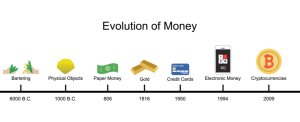
Ethereum
Ethereum
Ethereum is a decentralized, open-source blockchain platform that runs smart contracts: applications that run exactly as programmed without any possibility of downtime, censorship, fraud, or third-party interference.
Ethereum was created in 2015 by Vitalik Buterin, a programmer and researcher who was involved in the development of Bitcoin. However, Ethereum has a number of significant differences from Bitcoin, including its use of smart contracts and its ability to process more complex transactions.
On the Ethereum platform, users can create and run decentralized applications (DApps) that are powered by smart contracts. These DApps can be used for a wide variety of purposes, such as decentralized finance (DeFi), supply chain management, voting systems, and more.
Ethereum has its own cryptocurrency called Ether (ETH), which is used to pay for transaction fees and to compensate nodes (also called miners) for the resources they contribute to the network.
Ethereum has the second largest market capitalization after Bitcoin, and it is considered one of the most important cryptocurrencies.
Here are some key aspects of Ethereum:
Blockchain and Smart Contracts: Ethereum operates on a blockchain, which is a distributed ledger that records and verifies transactions. What sets Ethereum apart is its ability to execute smart contracts, which are self-executing contracts with predefined rules and conditions. Smart contracts automatically execute transactions or actions when the specified conditions are met, without the need for intermediaries.
Ether (ETH): Ether is the native cryptocurrency of the Ethereum platform. It serves as the fuel or “gas” that powers transactions and computations on the network. Ether is used to pay for transaction fees, deploy and execute smart contracts, and incentivize network participants.
Decentralized Applications (DApps): Ethereum enables developers to build and deploy decentralized applications, also known as DApps. DApps are applications that run on a decentralized network of computers rather than a central server. They can offer a wide range of functionalities, including financial services, gaming, decentralized exchanges, identity verification, supply chain tracking, and more.
Ethereum Virtual Machine (EVM): The Ethereum Virtual Machine is a runtime environment that executes smart contracts on the Ethereum network. It is a Turing-complete virtual machine, meaning it can perform any computation given enough time and resources. Developers write smart contracts in high-level programming languages, such as Solidity, and these contracts are compiled into bytecode that can be executed on the EVM.
Gas and Transaction Fees: Gas is a unit used to measure the computational effort required to process transactions and execute smart contracts on the Ethereum network. Each operation within a transaction consumes a specific amount of gas, and users must pay gas fees in Ether to perform actions on the network. The gas fee covers the cost of computation and helps prevent abuse of the network.
Upgrades and Improvements: Ethereum has undergone several upgrades to enhance its capabilities. The most significant upgrade is Ethereum 2.0, also known as Ethereum Serenity, which aims to transition the network from a proof-of-work (PoW) consensus mechanism to a more energy-efficient proof-of-stake (PoS) consensus mechanism. This upgrade aims to increase scalability, security, and sustainability.
Developer Community: Ethereum has a vibrant and active developer community, with numerous developers and contributors building applications, tools, and infrastructure on top of the platform. The Ethereum ecosystem includes developer frameworks, coding libraries, wallets, decentralized exchanges, and various other projects that support the growth and adoption of Ethereum-based applications.
Ethereum has played a significant role in advancing blockchain technology and enabling the development of decentralized applications and smart contracts. It has become one of the most widely recognized and utilized blockchain platforms, fostering innovation in various industries and paving the way for a more decentralized and programmable future.
Have Any Questions?
Do you have any question you could not get the answer here?
Any addition, Suggestion or removal?

BitWay Academy is a product of BitWay Technologies, A platform to educate over 100,000 African on how to start their cryptocurrency journey.
We want every AFRICAN to have good and sound cryptocurrency knowledge




